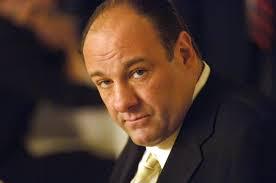Welcome | Log In
Lessons from James Gandolfini's Will

By Laird Yock
Paul Sullivan's recent article in the NYT, A Public Debate of the Wisdom of Gandolfini’s Will, is of interest to those of us who want to understand the basics of estate planning.
Even though the article makes no explicit mention of Mr. Gandolfini’s charitable intent, it contains several key points that are relevant to our work. Here is what I took from the piece:
1. Never assume your prospect has good planning counsel.
From a gift officer's perspective, this is by far the most important point.
2. The writer of the article is making some assumptions about the estate plan.
There may be revocable trust(s) that are part of the plan, and if there are, the content of those revocable trusts remains private--as opposed to a will, which is a public document.
You may remember that John Lennon had a revocable trust as the core of his estate plan, and consequently he kept his privacy.
A will is still required if there is a revocable trust at the core of the decedent's estate plan, but the will is very simple in that it says: anything not already in the trust now goes into the trust.
3. Another reason for a revocable trust is if there are assets in more than one state.
And, in the case of Gandolfini, more than one country.
If there's real estate as part of the estate, are there also proper provisions for the care and maintenance of the property, as well as determinations as to who receives the property?
"A broader issue with the property is that there is no provision in his will to pay for its upkeep. This is a common mistake--and a source of friction for heirs--when property is left to children. In this instance, the beneficiaries will have to pay for the property's upkeep themselves."
4. How do we ultimately determine if an estate plan is good or bad?
The article also reminds us that--regardless of the tax efficiency of the plan--if the plan accomplishes the purposes of the decedent, then it is a good plan.
If James Gandolfini wanted to avoid all estate taxes, he would have passed everything to his current wife. However, as in many of today's families, there is a first wife and children by the first wife, a second wife and children, and so on. Caring for those family members may very well take precedence over tax issues.
"All these people who are out there talking about the taxes, they don't get it," said Leiha Macauley, a partner and head of the Boston office at the law firm Day Pitney. "The person who is trying to provide for the children from the first marriage, the second marriage, and a wife who may be the same age as his sisters, he doesn't care about estate taxes. He wants to provide for them equally."
5. Which is best: providing specific dollar bequests or percentage bequests?
The answer is, well, it depends.
"I've seen people try to leave 50 percent in bequests and that's a problem," said Keith Brandt, an adviser with Washington Wealth Management. "Situations change and 50 percent of the assets becomes 100 percent of the assets."